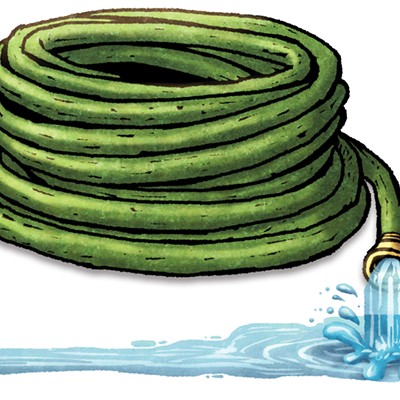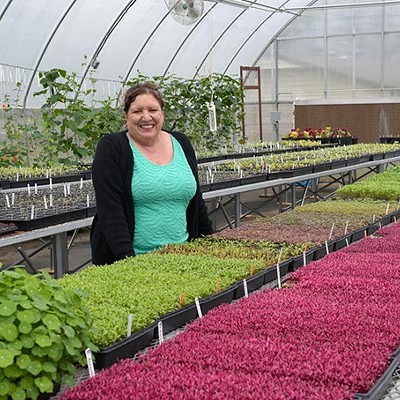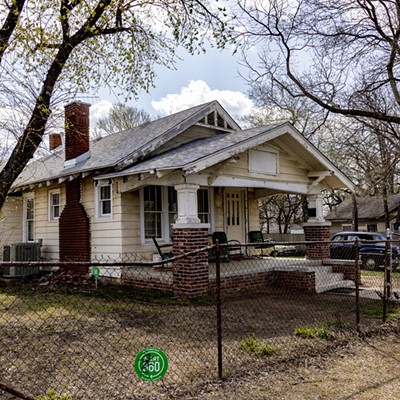With native grasses and trees, homeowners aren’t just landscaping their yards — they’re cleaning the stormwater that flows into the water system. That runoff is caused when rain and melted snow flow over land or paved surfaces and do not percolate into the ground.
“It’s a concern to us because that runoff goes into Lake Thunderbird, which is Norman’s drinking water,” said Vernon McKown, Ideal Homes co-owner and president of sales. “We’re taking a rain garden approach to see how we can remove fertilizers, heavy metals and pollution before that water gets into the system.”
According to the Environmental Protection Agency, stormwater runoff picks up debris, dirt, chemicals and other pollutants, which flow into the sewer system, lakes and streams.
As companies and homeowners look for ways to clean up that water, the solution may be in the power of plants.
RAIN GARDENS
A rain garden is a strategically placed planter system on a residential property designed to include plants and trees that filter out pollutants in runoff water. Ideal Homes is one of the few Oklahoma companies experimenting with rain gardens in its developments.
“Rain gardens are a clean filter for the chemicals you put in your yard and other debris,” McKown said. “Our rain gardens are at the front of the yard between the sidewalks and the curb.”
A special mix of more absorbent soil is used, and the rain garden itself acts as a holding reservoir for water.
“It’s like a big natural flower pot,” McKown said. “What’s cool is that the pollutants have nitrogen, which plants use as food.”
We have to do better as a society to deal with the stormwater quality.
—Vernon McKown
The company works with the University of Oklahoma landscape architecture program to design test gardens. Half the neighborhood will have one of three gardens using different varieties of plants.
“The concept is really new. We’ll be able to test the stormwater quality coming out of the storm drains and find out which combinations of plants work the best,” McKown said. “We have to do better as a society to deal with the stormwater quality, so really this is a simple thing to do. We use a variety of trees and shrubs, so it results in the greening of the neighborhood, too.”
POWER OF PLANTS
Heather Popowsky, owner of Neighborhood Gardener, an Edmond landscape design company, preaches the power of using native plants.
Besides needing less water and nutrients than non-native varieties, native plants are adaptive to Oklahoma’s challenging weather and conditions, and can be used to clean the stormwater and improve the soil.
“Some plants have more power than others, and if you choose a plant that’s not used to this region, then you’ll use more water and nutrients to make it thrive,” Popowsky said. “If you use native plants, you don’t need as much water or food in order for that plant to survive.”
Besides cutting down on water usage and fertilizers, native plants help rainwater saturate the ground, thus cutting down on stormwater waste.
“When you integrate rainwater into the soil, it acts as a natural filter,” she said. “The only way to get water filtered into the water table is by permeation. The root systems of native plants pull that water down.”
Popowsky warned against overwatering of a yard. If the ground is already saturated with water, then rainwater has nowhere to go but into the sewer. Replacing sprinkler heads with more efficient one is one way to cut down on waste, she said.
“You can also use French drains and runoff tanks in your yard that connect to a sprinkler system,” Popowsky said. “You’re recycling the runoff water.”
She recommended perennials for home gardens, calling annuals a “money pit.” Inside plants help clean the air, she said, “but you have to know your house and how much care you can dedicate to a plant.”











